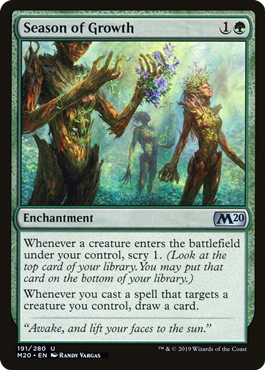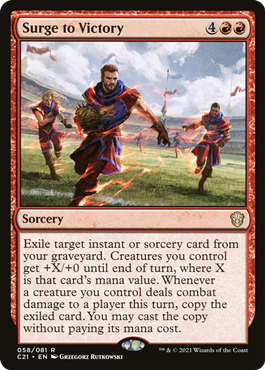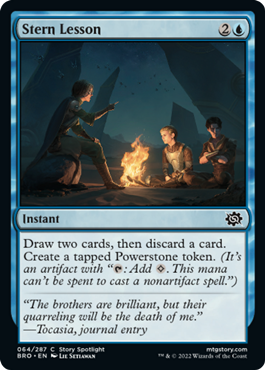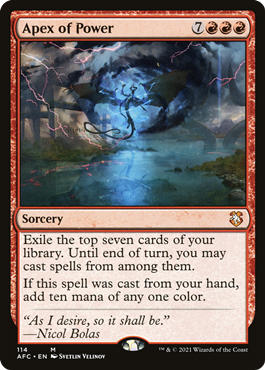The start of the new year just so happens to coincide with the start of the new Regional Championship Qualifier season, so I thought we could also start off 2023 with a new mindset. These are tips I’ve put together after my time spent grinding the competitive Magic circuit, and I hope you can use them to find success yourself. They’re honestly what I wish I knew before I started.
It’s Always RCQ Season
While RCQs are a new part of Magic, tournaments and ways to qualify for the Pro Tour have been around for decades. We might not have the RC forever, but there will always be some path to the upper echelons of the competitive scene.
When I first started playing, I would play in every event I could to try and qualify for the RC equivalent at the time — and I was lucky enough to always make it from the time I started until the system at that time ended.
However, there were weekends I should have taken off, and not doing so lowered my chances for reaching the Pro Tour ever so slightly. The reason? While my big picture goal was to make it to the Pro Tour, dedicating every week of my life to that single minded task railroaded my progress.
When you’re in the RCQ, streets it can seem impossible to grind your way out. Every season comes and goes, and you have to re-qualify every time.
But at the end of the day, missing one season won’t be the end of the world, and it doesn’t mean you have failed. You just haven’t achieved your goal yet. Use that season to learn from your mistakes and hone your process so you can tackle next season from a new direction.
The goal post will always move
This is a hard truth, but it’s one you have to learn: the goal post will always move throughout your competitive career.
You will get better at Magic and start comparing yourself to other, stronger players as you move up the totem pole. You will find yourself saying things like, “Yeah, I am good at Magic — but compared to who I want to compete with, I am so bad.”
That isn’t a bad thought by default, because staying motivated is good. And on the flip side, your peers may say things like, “Sure, you’re good at Magic, but you’re nothing like X player.”
Again, that’s true. There are always bigger fish. Just don’t let either of those comments throw you off the true goal: Being a better player than the version of you who played the last event.
That is the guiding light for getting better at Magic. No matter what happens, no matter what comes your way, always make every choice with that in mind.
Don’t bother looking around. Don’t worry about how others are doing. Keep your head down and focus on being better than your past self. If you stick to this mindset you will improve at Magic.
Results don’t matter
When you first start playing Magic, what is the indicator you used to see if you were getting better? The answer for everyone was winning. But once you start winning more than you improve, that stops being a good indicator.
That’s a wall every player hits eventually. But then your post, event questions will change from from “Did I win?” to “How did I play?” or “Did I sideboard correctly?” and even “Did I understand my role?”
Improving at Magic is a very nebulous and long task, and you will quickly bump into the long grind that requires honest reflection on how you played. So remember that winning is not what matters. How well you play is what matters.
Be honest with your goals (and play good decks if you want to win)
STOP. Take a break from reading this for thirty seconds and ask yourself the following question:
“What are my goals for Magic, both long term and short term?”
The answer to this could be anything from, “I want to qualify for the PT” as a long term goal to just to making a sweet brew that tournament players pick up and play. Your goal can really be anything.
Now, going forward with Magic, let that goal be the compass that guides your approach to events and deck selection. Your goal can change with time, but until it does, stick to that path.
Now, this may be contentious, but you need to understand something if your goal is to be a successful Magic player. If you want to win above all else, you might want to play decks you like less.
I have had to make these concessions multiple times throughout the years. For example, I played Arclight Phoenix at DreamHack Atlanta despite not liking that style of deck. But sometimes you are going to have to exchange some of that fun for the extra win percentage a certain deck comes with.
If you’re OK with being at a big disadvantage, feel free to choose differently — but you have to make that choice. You can try and succeed by being a brewer, and some players will pull that off. But to hold to the goals you’re setting for yourself, it sometimes requires certain strategies.
Of course, many players like to push back against playing the better deck for a number of reasons. Some might say, “I don’t want people to have a bunch of hate for me.”
This tweet from Pro Tour player Alexander Haynes gives you a feeling on how I feel about this. If you’re going to play some homebrew, really consider whether there’s any overlap in hate for the other popular decks in the format.
If there is, your brew won’t be as well tuned as a well established deck, putting you at a disadvantage. Picking an established deck is just a much safer choice, despite people having some hate for you.
The follow up to this issue is to consider how long the deck has been the best. In a format like Standard, if the meta has been that way for three to four weeks, it might be hard for opponents to actually hate the deck out. If that’s the case, you’re actually doing yourself a disservice by not playing it.
Others may claim, “I don’t want to lose the mirror to stronger players.”
If you’re going to be playing a stronger player, what is your best chance at winning: playing the strongest thing possible or playing something most likely worse, but with different cards from your opponent?
Just because the majority of your cards are the same as your opponent doesn’t mean you are automatically disadvantaged. In a lot of ways, you have a better chance because you know what their deck is capable of doing. Don’t shy away from the best deck just because there is a mirror. Eventually you will have to face this problem, so better to do it now than to run from it.
End step
These are hard lessons everyone must learn with time. Even with me telling you these now, many of you will still struggle as you learn the lessons through experience.
However, if you struggle, remember you’re not the first one to do so. Others have been in your position and overcome the challenges. That, itself, is a reward, and one you’re capable of claiming if you put in the work and learn from the mistakes of the past.
Good luck out there this RCQ season, and I hope these tips can guide you to victory during 2023! You can find me on Twitter, but you can also catch me on the circuit at the first Pro Tour of the year.

Mason Clark is a grinder in every corner of the game who has played at the pro level and on the SCG Tour with Team Nova. Whether he’s competing in Standard, Historic or Modern, Mason plays with one goal in mind: to be a better player than he was the day before. Check out his podcast, Constructed Criticism, and catch his streams on Twitch.





